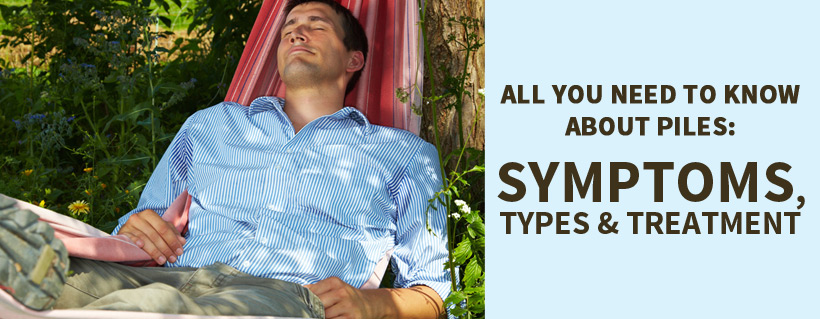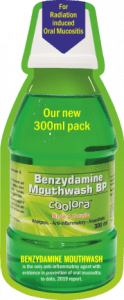Menu

Date: 11th Jan. 2018
If you experience discomfort in and around the anal cavity during bowel movements or while sitting, it could be a sign that you’re suffering from a condition called piles (medically known as haemorrhoids). Piles can affect people of all ages, but older adults and pregnant women are at an increased risk of suffering from piles.
In India, haemorrhoids affect over 10 million people per year. And 1 in 10 pregnant women suffer from piles. Yet, many find it embarrassing to talk about even with their physicians. While piles may resolve on their own, you must consult your doctor regarding any rectal bleeding. With the right steps, you can ease the discomfort and avoid a recurrence.
This article will cover piles treatment, symptoms, and types.
Piles is basically swollen and inflamed veins in the rectum. They develop due to the increased strain on the veins in the rectal region, often caused by long-term constipation, old age, and in some cases, pregnancy.
When stress is placed upon these nerves, it causes them to swell-up and the surrounding mass of tissues to slip downwards. When stool passes, the swelling stretches further and can lead to discomfort, pain, and even rectal bleeding.
Bleeding piles can also lead to an infection, making it crucial to seek medical attention during the early stages.
On the basis of their location, haemorrhoids can be classified as:
Internal haemorrhoids are too far inside the rectum, so they cannot be seen or felt. Since the inside of the cavity has too few pain-sensing nerves, there is usually no pain. In fact, bleeding may be the only sign of internal haemorrhoids.
External haemorrhoids are the kind that are under skin around the anus. The anal opening has many pain-sensing nerves, and as a result, these hurt as well as bleed. They are also more likely to hurt during defecation.
While not everyone may experience piles symptoms, some of the most common ones are:
In extremely rare cases, when piles recur often, the patient may experience anaemia-like symptoms such as weakness and pale skin due to loss of blood.
In many cases, piles can clear up without undergoing treatment. However, it is vital to visit a doctor before starting any form of treatment. Following are the different ways to reduce the discomfort and pain caused by piles:
Home care involves the following:
– Pain Relief
If you have external haemorrhoids, take warm water in a tub and soak for at least 10 minutes. Alternatively, you can sit on a warm water bottle. This will provide some pain relief and reduce the irritation. Also, use baby wipes or moisten your toilet paper rather than using it dry. You should also avoid rubbing the area and use patting motions instead.
– Dietary Changes
Since piles are related to chronic constipation, you need to consume foods that will soften your stools and reduce the strain. You can do it by:
-Increasing fibre in your diet: eat wholegrain bread, fruits, and vegetables
-Drink a lot of water
-Avoid caffeinated drinks like tea and coffee
Many people prefer to treat piles in a natural way. Herbal treatments include using products that are made of natural ingredients that help in treating piles. Your doctor may recommend herbal products for post-operative treatment as well. These products can be in the form of tablets or ointments.
– Pilon Tablets
Pilon Tablets contain various natural ingredients like:
– Ativish for reducing itching, improving digestion, and providing relief from flatulence.
– Sudhafatkari and Gritkumari for softening the stool and preventing constipation.
– Other ingredients like Kattha, Kariyal, Aritha, and many more for treating piles.
These tablets should be taken twice a day, one in the morning and the other at night for 30 days or as directed by the physician.
– Pilon Ointment
Pilon Ointment is a herbal medicine that has to be applied directly on the affected area. It has analgesic (pain relieving), anti-inflammatory, and anti-septic properties. This ointment also contains Kasisadi oil that has Kshar properties for cutting and removing piles.
For best results, it is recommended that you use Pilon Tablets and Ointment together.
Only around 10% of piles cases need surgery and it is the last resort for removing haemorrhoids. Surgery is usually considered when no other form of treatment works, and piles start affecting your lifestyle. External or prolapsed haemorrhoids that get infected may also require surgery. Following are the indications for haemorrhoids surgery:
With the right treatment, piles can go away on their own. Simple dietary and lifestyle changes can help you avoid a recurrence and lead a comfortable life. And meanwhile, you can use at-home tablets and ointments to ease the discomfort.
References:


| PRODUCTS | QTY | PRICE | VALUE in INR |
|---|
| PRODUCTS | QTY | PRICE | VALUE in INR |
|---|
15 thoughts on “All You Need to Know About Piles: Symptoms, Types & Treatment”
Nice Blog.
Thanks for the information. i found it really helpful.
We understand that Piles may not be a subject you feel comfortable talking about, but there is no need to suffer in silence.If you have piles, you should go for checkup.
Hello sir
I Would like to thank you for sharing a nice blog which is related to piles, piles symptoms, and its treatment. I Think Its a great blog related to piles.These blogs give a lot of knowledge, treatment option for piles and so on.
A nice blog on Piles, we Harsh Hospital provides the treatment for Piles in Surat – http://www.harshhospital.in/
Great blog. Thanks for sharing information related to the treatment of piles. Cureveda offers piles of products online to get relief from piles using herbal supplements.
Thanks for sharing your wonderful information. Really nice blog. It’s very helpful for many piles patient
piles specialist in Pune | piles clinic in Pimpri Chinchwad | best piles doctor in Pune
Thank you for sharing the information about symptoms, type and treatments for piles. For best piles treatment in Mumbai without operation Contact – +91 8879494666
Thank you for sharing the information of symptoms, type and treatments for piles. For best piles treatment in Mumbai without operation Contact – +91 8879494666
Thank you for sharing this information. I got an idea about When to Consult a Doctor and i told my friend about it and he consulted http://www.drjitenchowdhry.com and had amazing results.
Thank You for sharing this information with us it helped us a lot and also Dr Jiten Chowdhry also helped to get rid of piles without operation they are best piles surgeon in Mumbai visit their site for more information http://www.drjitenchowdhry.com/
I have read your article Highly informative this article. This article has lots of information and it is useful for us. Thanks for sharing information related to the treatment of piles. For more details, you can call at 9015100300 or write to us at doctor@vedascure.in.
Thank You for sharing this information, after reading your blog I started taking precautions in my diet. Dr. Jiten Chowdhry is the best pile surgeon in Mumbai to visit his site for more information http://arogyamhealingtouchclinic.com/
Great information. This article is useful. Very well explained. Thank you.
Piles Clinic in Bangalore
This is a good site to know about the health tips, providing on wide range of issues. It helps the viewers to follow as a precaution for their minor health issues.
Thank you for sharing this information with us, your blog helped me to understand more about piles and how I can prevent it before I have it. If you are suffering from piles visit http://arogyamhealingtouchclinic.com/piles-surgeon/ for more information.
This blog is really helpful to fight against piles and gives wonderful solution to become free from this disease.
piles remedy